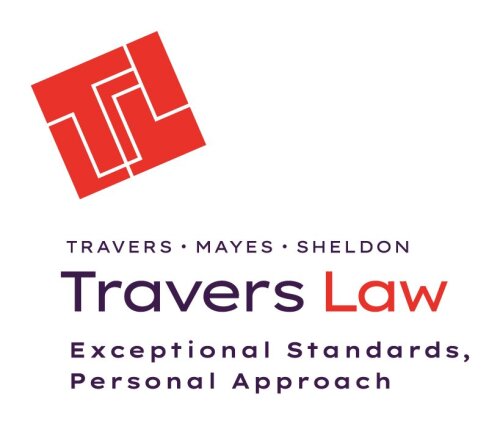Best Child Visitation Lawyers in Waterloo
Share your needs with us, get contacted by law firms.
Free. Takes 2 min.
Free Guide to Hiring a Family Lawyer
List of the best lawyers in Waterloo, Canada
About Child Visitation Law in Waterloo, Canada
Child visitation law, also known as parenting time or access, governs how separated or divorced parents spend time with their children. In Waterloo, Ontario, these laws aim to ensure that a child's best interests come first while maintaining a meaningful relationship with both parents or other important caregivers. When parents are unable to agree on visitation arrangements, the law provides a framework for resolving disputes, either through negotiation, mediation, or, if necessary, court intervention. The courts strive to create parenting schedules that foster the emotional, psychological, and physical well-being of the child.
Why You May Need a Lawyer
Navigating child visitation issues can be challenging and emotionally charged. You may need a lawyer for a variety of reasons, including:
- Difficulty reaching a visitation agreement with the other parent
- Concerns about your child’s safety or well-being during visitation
- Enforcing existing visitation orders when the other party is non-compliant
- Wanting to modify a current visitation schedule due to changes in circumstances
- Facing allegations that may affect your visitation rights
- Complex family situations, such as relocation or blended families
- Dealing with parental alienation or interference
Legal guidance can help you protect your rights and your child’s best interests, understand your options, and navigate the family court process or alternative dispute resolution methods.
Local Laws Overview
In Waterloo, child visitation issues fall under Ontario family law, primarily governed by the Children’s Law Reform Act and the Divorce Act (for married parents). Key aspects include:
- Best Interests of the Child: All decisions about visitation focus on what is in the child’s best interest, including emotional needs, stability, relationships, cultural background, and the child’s views (when appropriate).
- Parenting Time vs. Access: The newer term is “parenting time,” which refers to the time a child spends in the care of a parent or other guardian. “Access” is an older term, still sometimes used.
- Types of Orders: Parenting time can be set out in an agreement or ordered by the court. Schedules can be detailed (specific days and times) or general (reasonable and flexible contact).
- Supervised Visitation: In cases where there are concerns for the child’s safety, the court may order that visits are supervised by a third party or agency.
- Enforcement: Ontario courts have processes to enforce visitation orders when one parent is not complying.
- Modifications: Either party can request a change to a visitation order if there has been a significant material change in circumstances.
Local court forms and processes may vary, so it’s wise to seek guidance specific to Waterloo and surrounding jurisdictions (such as the Regional Municipality of Waterloo).
Frequently Asked Questions
What is child visitation or parenting time?
Child visitation, now more commonly referred to as parenting time, is the schedule or arrangement under which a child spends time with each parent or, in some cases, other significant adults, following separation or divorce.
How are visitation schedules determined in Waterloo?
Visitation schedules can be developed by mutual agreement between parents or decided by a court. The primary consideration is always the best interests of the child, including their relationships, routines, and overall well-being.
Can children decide who they want to live with or visit?
While the views and preferences of older children are considered, they are not the only factor. The court assesses the maturity of the child and the full context before making a decision.
What happens if my ex denies me visitation?
If a court order or agreed schedule is being ignored, you can seek help through the courts to enforce the order. Failure to comply can lead to legal consequences for the parent not following the order.
Can visitation be supervised?
Yes, the court can order supervised visitation if there are concerns about the safety or well-being of the child. Supervision is usually at a neutral location or with a designated third party.
Do I have to go to court to get a visitation order?
Not always. Many parents negotiate and create their own parenting arrangements through mediation or with the assistance of lawyers. However, court involvement is necessary if you cannot reach an agreement or need an enforceable order.
My circumstances have changed-can I change the visitation order?
Yes. You can apply to adjust the visitation order if there has been a significant change in circumstances, such as a parent moving or changes in the child’s needs. The court will again focus on the child’s best interests.
Can grandparents or other family members get visitation rights?
In Ontario, grandparents and other significant adults can apply to the court for contact orders if it’s in the child’s best interests. The court considers the relationship and the benefit to the child.
What if I can’t afford a lawyer?
Legal Aid Ontario may be able to help if you meet certain financial criteria. There are also local legal clinics and duty counsel at family court who can provide limited assistance for eligible individuals.
How long does it take to get a visitation order?
The time varies, depending on your situation and whether the process is contested or agreed upon. Mediation and negotiation can be quicker, while a court process may take several months or longer.
Additional Resources
If you need more information, guidance, or legal support, consider these resources in Waterloo, Ontario:
- Family Law Information Centre (FLIC) - Waterloo: Provides free information on family law, court processes, and available services.
- Legal Aid Ontario: Offers help to those who qualify financially, including family law certificates and duty counsel at the courthouse.
- Waterloo Region Community Legal Services: A local legal clinic that may offer assistance for low-income residents.
- Ontario Ministry of the Attorney General: Provides guides and forms for family court procedures.
- Family Mediation Services - Waterloo Region: Offers mediation to help resolve parenting and visitation disputes collaboratively.
Next Steps
If you need legal assistance with child visitation in Waterloo, here’s what you can do:
- Gather documentation: Collect all relevant documents, such as existing agreements, court orders, and records of communication with the other parent.
- Consult a lawyer or legal aid service: Reach out to a family law lawyer, local legal clinic, or Legal Aid Ontario to discuss your situation and understand your options.
- Consider mediation: If appropriate, try mediation or alternative dispute resolution services before turning to court, as these can be faster and less adversarial.
- Follow court procedures: If agreement can’t be reached, prepare to file or respond to an application in the Ontario family court.
- Keep the child’s best interests as your focus: Courts and professionals will always prioritize the child’s well-being-make sure your actions reflect that priority.
Seeking legal advice early can help you understand your rights and obligations, avoid pitfalls, and work towards a solution that serves your family’s needs.
Lawzana helps you find the best lawyers and law firms in Waterloo through a curated and pre-screened list of qualified legal professionals. Our platform offers rankings and detailed profiles of attorneys and law firms, allowing you to compare based on practice areas, including Child Visitation, experience, and client feedback.
Each profile includes a description of the firm's areas of practice, client reviews, team members and partners, year of establishment, spoken languages, office locations, contact information, social media presence, and any published articles or resources. Most firms on our platform speak English and are experienced in both local and international legal matters.
Get a quote from top-rated law firms in Waterloo, Canada — quickly, securely, and without unnecessary hassle.
Disclaimer:
The information provided on this page is for general informational purposes only and does not constitute legal advice. While we strive to ensure the accuracy and relevance of the content, legal information may change over time, and interpretations of the law can vary. You should always consult with a qualified legal professional for advice specific to your situation.
We disclaim all liability for actions taken or not taken based on the content of this page. If you believe any information is incorrect or outdated, please contact us, and we will review and update it where appropriate.










